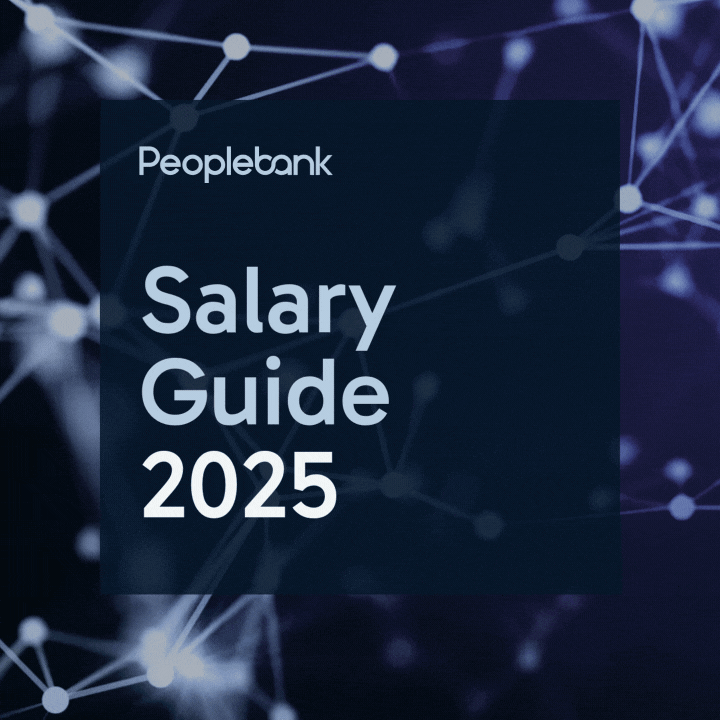Traditional to Digital
3 Jobs Going Digital
As an ever-increasing amount of jobs transition from ‘traditional’ to ‘digital’, the fight for talent has become significantly fiercer, as employers try to attract and retain the best and most skilled professionals. These changes in the market have been driven by more companies investing in digital transformation and taking their businesses online. Here are three roles in particular that are undergoing significant changes, and the best ways for employers to attract and retain IT talent for these evolving positions.
Statisticians and Ph.D. Grads to Data Scientists
Data Scientists will continue to be one of the most in-demand professionals for 2016, as business leaders increasingly recognise the value of data and how data-related technologies can impact their bottom line.
While the term ‘data scientist’ only properly surfaced and became mainstream within the last two years, if you look at the skills required for this role, it essentially comes down to mathematics, statistics and problem-solving.
Many data scientists would have progressed into their role from that of a statistician, and their career trajectory will continue to shift and evolve in the years to come. Another large portion of today’s data scientists are coming from PhD graduates in science and mathematics. Historically, Ph.D. graduates in these fields would have pursued careers in research, analysis, or further academic studying. However, today, data science has become an increasingly common and attractive career path.
With data scientists being recently donned as the ‘sexiest job in the world’, employers will need to go above and beyond to ensure the best talent is on their side. Salaries are definitely a key point to address, but contrary to common belief, this is far from the most important thing to IT candidates today. Flexible workplaces, strong workplace culture, and an environment where employees can genuinely contribute to creating a real impact on broader society are key drivers we are increasingly seeing in the market. Employers need to start thinking outside the box in ensuring that the ‘sexiness’ of data science can truly come to life for employees, and provide an environment where their skills and the impact of their skills are valued.
Digital Business Analysts
The Business Analyst (BA) role has traditionally covered a broad range of skills and responsibilities, though has evolved into more specialist areas, particularly within the last year. Recently, we have seen the emergence of the Digital BA and Agile BA professions, now requiring specific skills and experience in digitally led programs such as eCommerce, CRM, Content and User Experience.
While many professionals would claim to have Business Analyst experience, it is getting harder to find digital skills as companies are looking to fill unique roles with exact requirements. The growing hype around agile also shows companies want to make quicker and more effective changes to get ahead of competitors.
Companies recruiting digital or agile BA’s tend to be larger organisations looking for strong skills-sets that can pull them out of traditional ways of working and into the digital era. For these kinds of companies wanting real and significant change, they’ll need to support this with changes to the way they offer work. Flexible working will soon be seen as not just a perk, but a standard offering, particularly among the millennial generation. This covers everything from working remotely, working outside the 9-5, unrestricted holiday and sick leave, flexibility around working on side projects, and more.
If the recruiter looking for this talent so happens to be a start-up, these kinds of businesses have a tendency to require longer hours of their staff. Consequently, if your staff are going to be spending longer than usual periods of time in the office, you need to think about how attractive that space is for them, physically and mentally. Start-ups are offering everything from free food and alcohol, to pool tables and ping pong tables, to in-house gyms and massages, in an effort to make their workplace one where employees actually want to be. When you look at your office, ask yourself, would I want to be here if I didn’t work here? If not, how can you expect your employees to want to be working there beyond normal hours?
Project Managers will adapt to Digital Transformation Managers
Project Managers across various industries will be deeply involved in the digital revolution as organisations continue to digitalise their operations. Digital disruption pushes organisations to restructure their IT departments and collaborate with different departments such as marketing, sales, product, and senior management. While there will continue to be demand for Project Managers, those with a digital background will become increasingly valuable to organisations, and the seemingly new Digital Transformation Manager role will soon turn mainstream.
Within the next ten years, 75 per cent of the workforce will be millennials, and we can expect an even higher percentage for our future Digital Transformation Managers, as this generation continues to live and breathe digital from the start of their careers. Comparing Australia to the US and UK markets, it is clear we are significantly behind on our tactics in attracting millennials to our workplaces. Overseas, concepts such as unlimited leave started as anomalies by leading tech companies but quickly grew to be popular trends and then eventually became the norm across the industry. This has raised the standard throughout the market for attractive workplaces and work environments.
Local tech employers need to be starting these trends and leading the conversation on things like paid maternity and paternity leave, working remotely, and providing work environments where employees work passionately for a common purpose. In doing so, they can contribute towards raising the general standard in the industry, inflicting change at other organisations and among the broader workforce.
The next few years will see many traditional jobs shift to a digital perspective with constantly evolving skills. For recruiters of this digital talent, they need to ensure their salary offerings are competitive as a first step. Consequent steps should include offering flexible working conditions, considering the candidate’s personal lifestyle and interest, and questioning what drives them at work. Once all these factors are taken into consideration, you can then truly join the fight for talent. However, without any one of these considerations, you’ll find your organisation falling further and further behind in this battle.






















